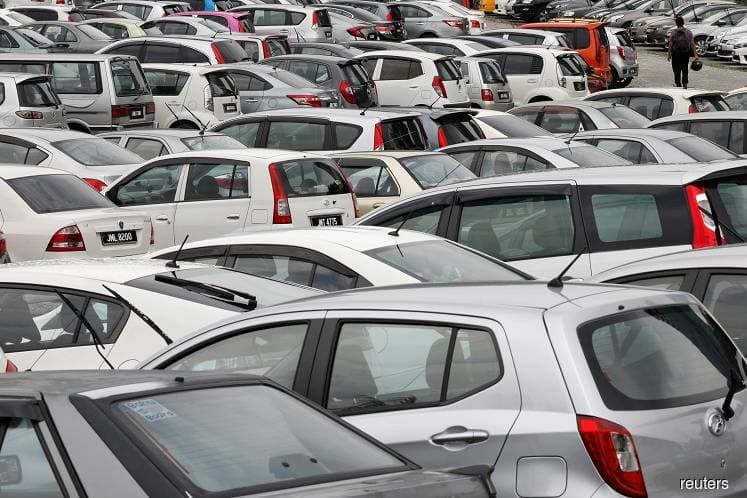
KUALA LUMPUR (June 4): Affin Hwang Capital Research has upgraded the auto sector to "neutral" following the sales tax exemption for new car purchases to revive the subdued demand for cars.
In a note today, the research house said the sales tax exemption should limit the sharp contraction in sales seen in April's year-to-date total industry volume (TIV) figures (down 44.75% to 106,601 vehicles from 196,111 vehicles a year ago).
"With the government's tax exemption for cars, we expect the 2020 auto sector's earnings decline to ease, by 8% y-o-y [instead of our previous expectation of an 11% decline]. In tandem, we upgrade the sector to 'neutral' [from 'underweight']," it said.
Under the Economic Recovery Plan (or Penjana), Prime Minister Tan Sri Muhyiddin Yassin announced a sales tax incentive of up to 100% for completely knocked-down vehicles and 50% on completely built-up vehicles from June 15, 2020 to Dec 31, 2020. Under the sales and service tax regime, all vehicles are subject to a 10% sales tax.
Affin Hwang said the sales tax exemption for vehicles was a timely reboot to revive the subdued car demand.
It was previously reported that in April 2020, car sales were down a staggering 99.7% to just 141 vehicles, compared with 49,935 cars sold in April 2019.
According to the research house, preliminary checks indicated that car prices could be lowered by an estimated 3% to 8% under the sales tax exemption. Additionally, it also opines automakers may even take advantage to roll out new model launches, dole out additional discounts and pull out every incentive to clear out the piled-up inventory and to weed out the competition.
Nonetheless, it maintains its TIV forecast of 485,000 units (down 20% y-o-y from 604,000 units recorded in 2019) amid the macroeconomic challenges, which it said would put a dent on the discretionary consumption.
"While we do not discount that this incentive, coupled with the cheaper oil prices and lower hire purchase loan rates, may tempt new-car buyers, we think that the challenging macro environment (for example high unemployment and lower disposable income due to pay cuts) will see Malaysians deferring purchases of big-ticket items.
"We think Malaysians may even consider commuting with the MY30 unlimited travel pass to cope with the economic shock. Furthermore, we sense that many Malaysians are adapting to the work-from-home setting, hence cars may not be perceived as a necessity in the coming months," it added.
For sector exposure, the research house prefers Bermaz Auto Bhd given its attractive valuation while its cash-rich balance sheet should weather a temporary economic downturn. It has a "buy" call for Bermaz Auto with a target price of RM2.38.
At 11.45am, Bermaz shares traded 12 sen or 8.11% higher at RM1.6, at their three-month high, after some 7.73 million shares were traded. The stock has gained 68% from its recent low of 95 sen on March 19 this year.
For the cumulative nine months ended Jan 31, 2020, Bermaz's net profit contracted 52.2% to RM98.05 million from RM205.21 million, while revenue declined 25.3% to RM1.46 billion against RM1.95 billion a year earlier. It attributed the decline in results to lower sales volume from domestic and the Philippine operations.